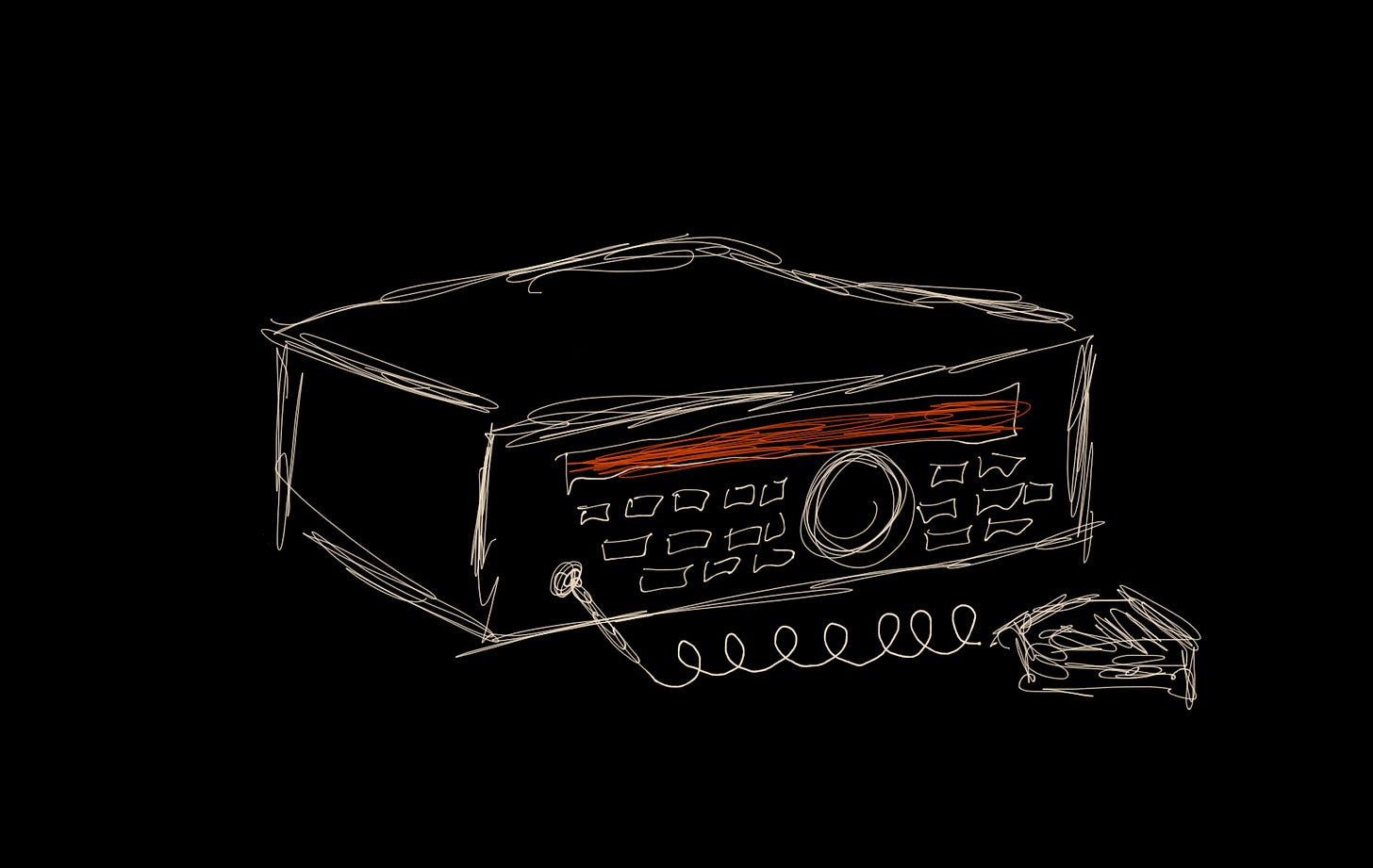Contingency Plans: What can we learn from our friends in HAM radio?
Juxtaposition is a powerful tool when looking for inspiration on what is possible. I’ve long been a Lurker of the HAM radio community. I’m not a member of that community, but I am familiar with some interesting aspects of the community. It’s inspiring that it exists and has a place in our modern world.
Amateur radio goes back to the beginning of radio broadcast technology and has a history of existing in parallel with government entities and commercial radio operators. As someone who works in Internet technology and cloud computing, I also appreciate our long history of amateur operators. The feedback loop between the government, commercial operators, and the hacker community has made the internet such a strange and interesting place from its beginning. Sure, it’s full of contradiction, absurdities, and competing interests, but I still think it’s one of the most interesting building projects humans have ever participated in. I especially love stumbling across unique DIY projects like becoming your own ISP and operating as a BGP Autonomous System.
What I find most fascinating in the HAM radio community is the subset of folks focusing on emergency services and contingency preparedness. These folks organize, plan, and drill preparedness exercises to ensure they are ready if and when disaster strikes.
What can we learn from the HAM community regarding disaster planning and preparedness, and how can we get more volunteers from the community involved? Several HAM radio folks I know are well-versed in thinking about disaster scenarios and take pride in thinking through their personal preparedness.
I can’t help but feel we’ve lost this in our internet communities in general (though I’d love to be wrong if folks have examples of non-commercial HAM-like disaster planning communities, I’d love to hear about them). While it is still possible for people to self-host servers and run their own networks; it feels like we continue on a path of consolidating more and more internet infrastructure to a smaller and smaller number of players. We expose ourselves to dangerous failure conditions that are antithetical to the entire purpose of the internet.
I know that there are efforts to decentralize communications with modern tools like ActivityPub, IPFS, and distributed ledgers, but this is only part of what I’m talking about. What contingency planning do we have in place if fundamental assumptions in public key cryptography are broken? What if we woke up tomorrow and discovered that a breakthrough in Post-Quantum Cryptography had already arrived, and our security assumptions around factoring large primes and discrete logs were entirely broken? What could a community response look like? Could we rapidly roll out more cumbersome but cryptographically sound alternatives until we’ve more widely deployed PQR algorithms? How would we know unless we actually run propose plans, build tools, coordinate involvement and drills?
Recently my friend shared a 2015 paper with me called The Moral Character of Cryptographic Work by Phillip Rogaway. I recommend reading it. While I’ve made observations about the HAM radio community in the past and thought a lot about the challenges of Post-Quantum Readiness, I hadn’t thought about the two together until I’d read this paper.
What are our contingency plans for those of us who work in computing, networks, and cryptography?
What are our “out of band” communication tools for disaster scenarios?
Have we become too lax in what we accept in how things are done?
Do we have a moral responsibility to be prepared for cryptographic and information technology disaster scenarios?
Fueled by platforms that spend billions centralizing technology instead of taking a distributed operator-first approach, are we setting ourselves up for catastrophic failure as a civilization? Even if it is more inefficient, cumbersome, and awkward, wouldn’t it be smart to develop these alternative technologies as a community, not as a direct replacement for the massive systems we’ve built for speed and convenience, but as an insurance policy against unforeseen weaknesses in our assumptions?
I don’t have an answer, but I hope I’ve offered some food for thought. I know each of us can personally work on disaster recovery plans and personal preparedness, but how can we learn from adjacent communities in cultivating community preparedness? What gaps in our own assumptions can we identify and work towards addressing? How can we build contingency plans that help us address these concerns?
I know I plan to do more research in this area and spend more time thinking through these problems. Who knows, maybe we can do that together.
Interesting Links of the Week
I stumbled upon this video in my research this week. It’s glimpse into the past and shows what it was like to be a tinkerer in HAM radio back then.
An interesting look into the history of IQ and its controversies, uses, and limitation past and present.
Dark Matter (whatever it is) is so weird. This is a deep dive into the various dark matter models and covers the strengths and weaknesses of each.


